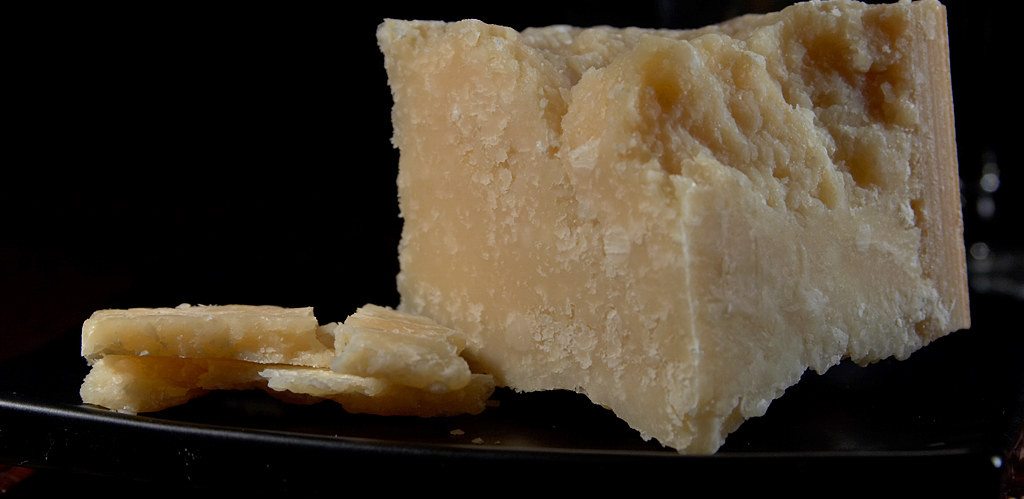“Parmesan isn’t vegetarian, Xananas”
[dropcap]I[/dropcap]f you’re a vegetarian, you’ll know what I mean when I talk about the feeling of seeing the vegetarian sign on a restaurant menu; involuntary choir of angels singing in your head and all that. If it’s got a (v), it’s vegetarian. You’re safe.
Except that doesn’t always seem to be the case. An extremely common example is parmesan cheese, which isn’t vegetarian. This is a relatively unknown fact, partly because restaurants have dishes which contain parmesan yet have the vegetarian sign next to them. It’s easy to find. Warwick SU outlet Xananas put the following on their menu for Pancake Day and marked it as vegetarian: asparagus, spinach, parmesan and hollandaise.
The Vegetarian Society says:
“In order to be called ‘parmesan’ this has to be produced according to traditional methods which use calf rennet.”
Being called parmesan and being vegetarian are, then, mutually exclusive. Animal free rennet is a thing, but uncommon, plus technically means if that is used, the cheese shouldn’t be called parmesan.
If Xananas are using an animal free rennet, it isn’t really correct of them to call it parmesan. Punctilio perhaps, but necessary. If it is vegetarian, simply write “cheese” or “vegetarian parmesan”. By writing “parmesan”, when it isn’t actually parmesan (by virtue of it being vegetarian), there’s a confusion
over whether it’s vegetarian or not. Having been to restaurants and asking if the dish is vegetarian even though it contains parmesan, waiters look bemused. After pressing them to check, they come back and say it is traditional parmesan. Translation: it is not vegetarian. Being in the business of food, one would expect a certain base level standard of knowledge. If they can’t get their facts right, do we really want to trust them with our meal?
By specifying the cheese as “animal rennet free”, it’s easy to avoid the entire mess and force restaurants to know exactly what is vegetarian and what isn’t. It’s just as an important distinction to be made as those made regarding allergies or any other dietary requirements.
Putting a (v) sign alongside the word parmesan is wrong, no matter what. If it is true parmesan, it isn’t vegetarian. If it’s made with animal free rennet, it shouldn’t technically be called parmesan, and so needs to be labelled as such.
Without making this distinction, there’s a blurring of that line between vegetarian and not, allowing restaurants to think there isn’t a distinction to be made. This blurred line means vegetarians could be eating something they shouldn’t be without knowing it, and is completely unacceptable.

Comments